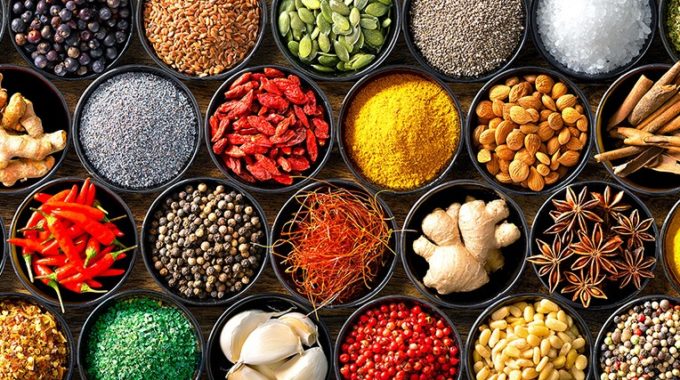The best herbs and spices for health
We catch up with Alene Sullivan of Perth’s Wholesome Market to talk about the best herbs and spices for health and wellbeing. If you have a nose around in your pantry, you may well find that you already have some of them to hand. We also share some simple tips on how you can incorporate them into your cooking or daily routine.
“People don’t necessarily think about the health benefits of even the most basic herbs and spices,” Sullivan says. “But they can offer such wonderful health benefits. Of course, if you’re just using a sprinkle, it’s not going to change your life. But the more you add, and the more you layer them into things, the more benefits these herbs and spices can offer.”
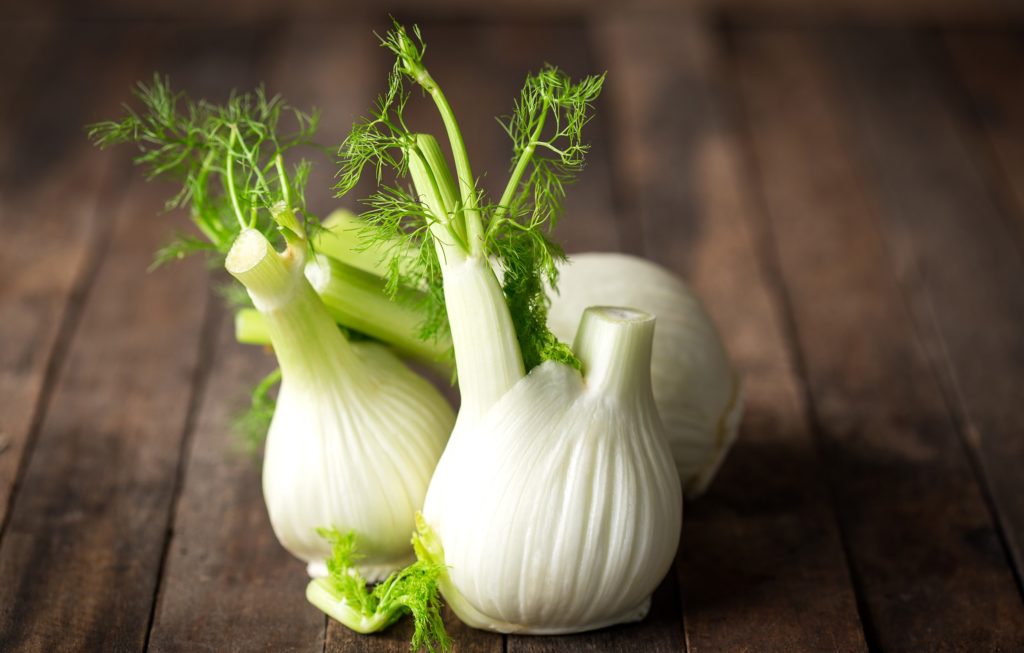
Fennel
Fennel is a staple in Sardinia – one of the world’s Blue Zones. Like Okinawa in Japan and Ikaria in Greece, this is an area where people have a much greater life expectancy with less risk of disease. Fennel is high in antioxidants, particularly the seeds. It’s also great for gut health and can aid digestion. It’s even been linked to lower blood pressure.
“Fennel is an incredible source of essential fatty acids and magnesium in its raw state,” Sullivan says. “The seeds are known to have antioxidant and anti-inflammatory properties. These are buzzwords for many herbs and spices; they have these incredible antioxidant, anti-inflammatory, anti-viral effects. But what’s really interesting is that, for women, fennel seeds can ease menstrual cramps and stimulate the production of breast milk.”
How to use it
“With fennel, you can reap the benefits from it in its natural state in the bulb as well as from the seeds,” Sullivan says. “It’s an all-inclusive herb. You can use the bulb raw in salads. Or you can roast it. That completely changes its flavour; it becomes sweet and caramelised.
“In its raw form, fennel does have a liquorice flavour, which some people might love or hate. I personally like to pickle it with different coloured peppercorns and citrus peel. And you can put that on a charcuterie board or eat it as a pre-meal snack.”
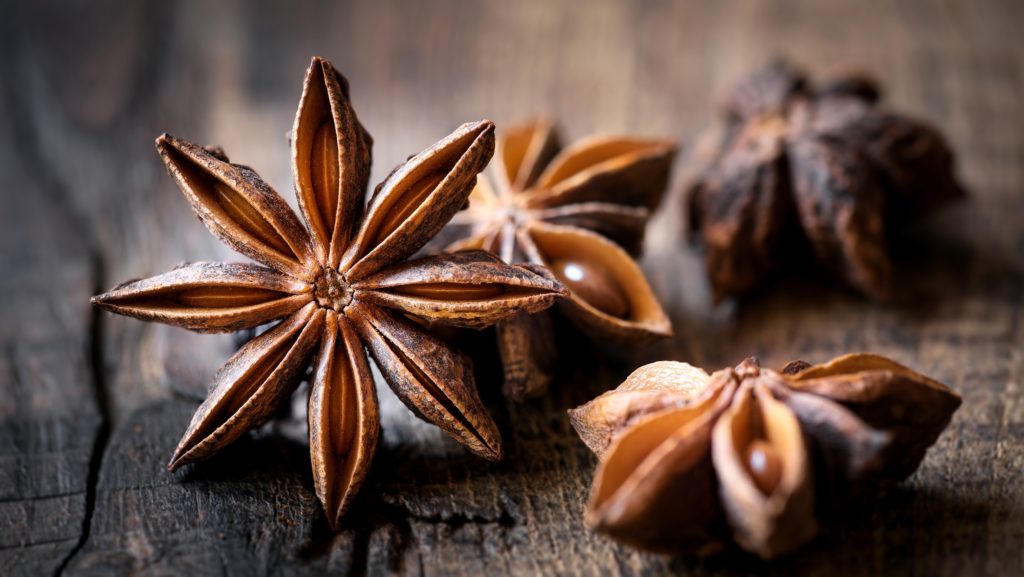
Star anise
Another one with a liquorice flavour is star anise. You’ll find this spice layered into a lot of Asian and Middle Eastern dishes. Rich in bioactive compounds and antioxidants, star anise may help to reduce stress and improve sleep. It’s also been found to help treat viral, fungal and bacterial infections and aid digestion. Plus, it has anti-inflammatory properties and can help to regulate blood pressure. Star anise can even work as an insect repellent.
How to use it
“You’ll find star anise in a lot of teas, chais and mixed supplement powders,” Sullivan says. “Try layering it into your daily lattes and shakes. You can also add it to stews, broths and curries – slow-simmering foods. You can also add it to sweets like apple pie. Or if you’re making chicken soup, some star anise can add a layer of complexity to the flavours.”
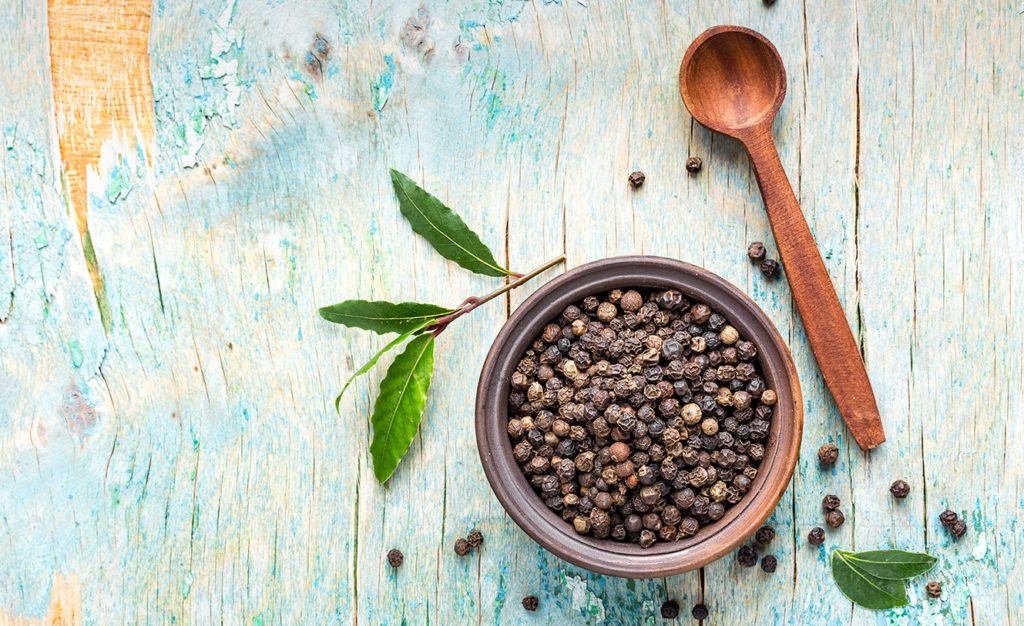
Pepper
This is one that everybody has in their pantry. Pepper is known as the “king of spices”. It’s one of the most widely used spices in the world. But when you grind some pepper onto your dinner, you probably don’t realise it’s also chock-full of good stuff. Packed with antioxidants and anti-inflammatory properties, pepper is also rich in a plant compound called piperine. This has been linked to improved brain function, may help lower cholesterol levels and may even have cancer-fighting properties. Another interesting fact is that pepper can boost the absorption of nutrients like selenium and calcium. It can also increase the absorption of plant compounds, like those found in green tea and turmeric.
How to use it
It’s pretty straightforward, really. Add pepper to everything. Except maybe ice cream.
“A really simple concept is that you can use black pepper to decrease your use of salt,” Sullivan says. “It adds flavour without having the negative consequences of salt. We’re seeing it pop up in coffee products that have added supplements, like turmeric. It makes the turmeric more effective. Before You Speak makes wonderful coffees that contain added benefits. When you see turmeric listed as an ingredient, you’ll see black pepper next to it.”
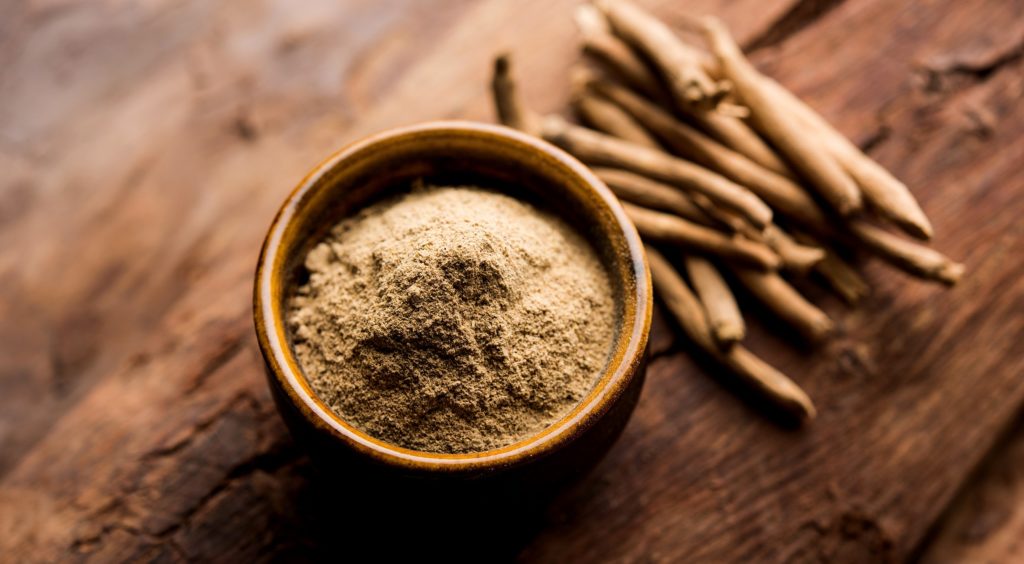
Ashwagandha
No, we didn’t just make that up. This is a powerful medicinal herb that Sullivan takes every day. It’s well-known for its anxiety and stress-relieving properties. Ashwagandha may also help to relieve the symptoms of some mental illnesses, such as depression. It’s also been shown to boost energy levels and improve brain function and memory. It may even improve athletic performance by boosting strength and oxygen use during exercise. Speaking of performance, the herb may also boost testosterone levels and increase fertility in men.
How to use it
This isn’t something that you can sprinkle on a steak or add to your soup. But it does come in capsule, powder and liquid extract forms. There are even ashwagandha gummies.
“It’s starting to pop up all over the place,” Sullivan says. “A lot of companies are incorporating it into their ranges of supplements, which you can take every day.”
For more info on herbs and spices, check out this advice from Ian Hemphill, one of Australia’s foremost culinary herb and spice experts. To check out Wholesome Market’s range of supplements, head to wholesomemarket.com.au


